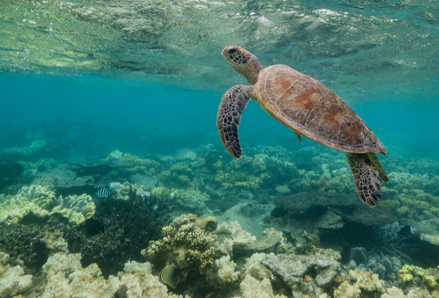This article is part of our monthly travel and global health news round-up.
This month we look at some of the big questions in responsible travel: Why are coral reefs dying? How do toilets and sanitation affect me and the communities I visit?
We also look at two facets of accessible travel: A step by step guide to travelling with MS and one expert’s thoughts on why accessible travel is so rewarding, despite its challenges.
In the news this month
1. Is Your Sunscreen Poisoning the Ocean?
The New York Times
It’s well known that protecting yourself from sun exposure helps to prevent sun damage that can lead to skin cancer and other illnesses. Sunscreen is one of the main methods of protecting your skin – especially at the beach – but many people are unaware that sunscreens can damage sensitive environments like coral reefs. In this article, Peggy Orenstein shares her impressions of the damage to the coral reef in Hawaii that she’s visited for decades. She says:
Bleaching has been more severe in heavily touristed areas — Hawaii, the Great Barrier Reef, the United States Virgin Islands among them — and the stress of background pollutants makes even remote reefs less resilient to larger threats.
It’s a cruel irony that protecting yourself and your kids from skin cancer has come at such a cost to the ocean. The good news is that there are alternatives. Mineral sunscreens — whose active ingredients are titanium dioxide or zinc oxide — are one option.
If you’re visiting a coral reef, consider using mineral sunscreens, wearing long-sleeved UV-protectant clothing, and staying out of the sun during the middle of the day when the sun is most intense.
2. Nearly a billion people still defecate outdoors. Here’s why.
National Geographic
Sanitation, toilets, and open defecation are a hot topic in India. With successful “no toilet, no bride” campaigns and a recent romantic comedy dedicated to the subject, sanitation is on everyone’s mind. However, open defecation persists in some communities – and continues to make people sick from fecal contamination in their food and water. In this in-depth article, National Geographic correspondent Elizabeth Royte writes:
The health toll [of open defecation] in India is staggering. Diarrhea kills over 117,000 children under age five each year. Millions more struggle on with chronically infected intestines that don’t absorb nutrients and medicines well. The misery cycles on: Underweight women give birth to underweight babies, who are more vulnerable to infections, more likely to be stunted, and less able to benefit from vaccines. In 2016, 39 percent of Indian children under age five were stunted.
According to WHO, at least 10% of the world’s population may be consuming food that has been irrigated with waste water. Fecal contamination of food and water can occur in the fields where food is grown, through cracks in aging water pipes, or from food handlers who do not use good hand hygiene. This can result in a mild bout of traveller’s diarrhea or more serious illnesses like Hepatitis A or Typhoid, but for children or older persons diarrhea can be life-threatening.
3. The challenges of travel for people with MS
U.S. News & World Report
Multiple sclerosis (MS) is an autoimmune disease that affects the brain, spinal cord, and nerves. Travelling with MS can be a challenge because of the unpredictability of MS symptoms and the stress and planning that goes along with managing them.
You can’t just say, ‘I’ll go next week,’ hop on a plane and go. There can be a lot of planning required, particularly if you are traveling with a mobility device, from getting on the airplane to what happens when you get to your destination.
– Debra Frankel, director of MS professional workforce development for the National Multiple Sclerosis Society
As with any medical condition, check with your healthcare practitioner to make sure that your trip is appropriate for you. Start planning well in advance of your departure:
- Research your destination, consult accessible travel organizations, and get in touch with your airline and accommodation in advance to ensure that they meet your needs.
- If you are travelling with medications or medical devices like a wheelchair, bring a letter from your healthcare practitioner that explains your medical condition and health needs.
- Be aware of your stress levels and don’t hesitate to change your plans if needed to minimize stress.
4. Accessible Travel And Mental Health – Anxiety, Stress, Triumph And Joy
The Huffington Post
We love a feel-good story. Travellers with disabilities (visible and invisible) often face unexpected barriers that prevent them from enjoying their trip and can cause major anxiety. Accessible tourism expert Carrie-Ann Lightley shares her experience of the worries and challenges of travelling in Italy and the joy of experiencing a new place to the fullest:
Accessible travel isn’t always easy, it does require a lot of extra planning and sometimes there are surprises along the way. For me, that makes the beach sunsets, the rooftop city views, and the countryside landscapes even more beautiful. To have overcome what feels like a million extra obstacles and be able to say ‘I got here!’ is an amazing feeling.
Photo by Scott Ruzzene, Unsplash.
Article by Daphne Hendsbee.



